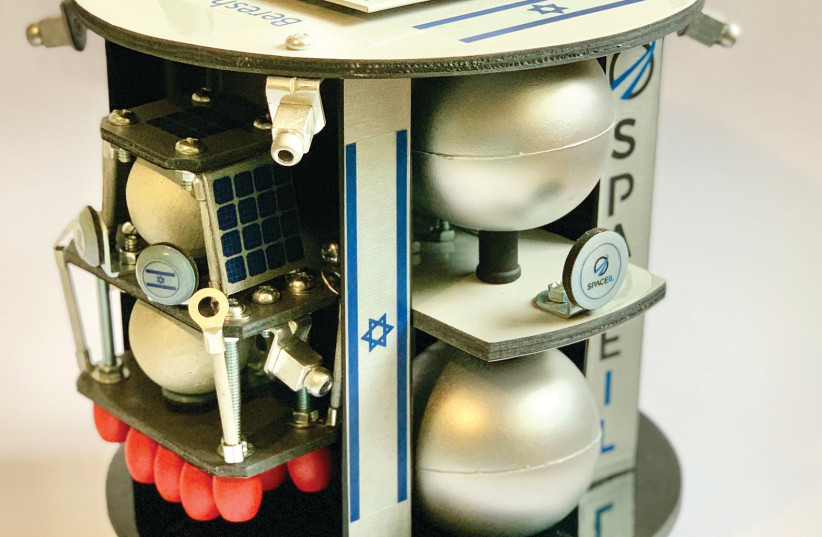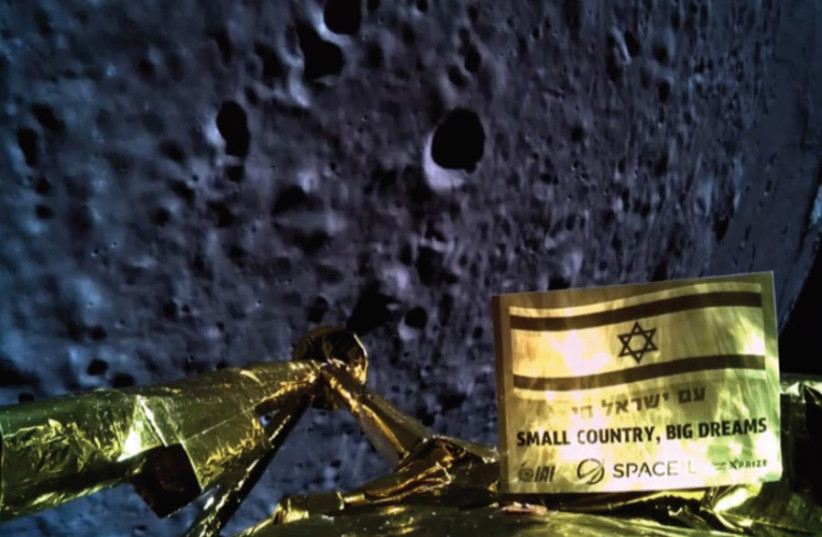SpaceIL announces medication durability experiment for Beresheet 2 mission
The first experiment chosen to be conducted on the Beresheet 2 mission is to test which medications hold up best in space and how they are affected.
SpaceIL chose an experiment to test the efficiency and durability of medications in space as its first experiment that it plans to conduct aboard its next space mission named Beresheet 2.
In the last year, SpaceIL has been collecting experiment suggestions from Israel's youth as part of a program to make science and space more accessible and interesting to them.
In order to choose which experiments would be conducted, SpaceIL set up a consulting committee made up of SpaceIL representatives, leading scientists in Israeli academia, education institutions and the Israeli Space Agency.
The first chosen experiment is led by Prof. Sarah Eyal from the Hebrew University of Jerusalem and will test the efficiency of medications long term in space during the mission to fly around the moon. The medications tested will be a combination of life-saving medicine and non-emergency medicine.
Why do medications need to be tested in space?
Every medication comes with a set of instructions on how best to store it so that it doesn't lose its efficiency, but the conditions in space are different from those on Earth. Space radiation among other conditions can change the efficiency of the medications.
These days, every one of the team members on the International Space Station uses an average of 20 medications including sleeping pills, antibiotics and painkillers. They need to be very careful with their medication, especially on long-term missions, because they cannot get their medications refilled, and they won't be able to return to Earth fast enough in the event that one of the medications causes an extreme and even life-threatening reaction.
The information that astronauts have as of now points to medicines can be strongly affected by space radiation and become less effective or even dangerous, but more research needs to be done to determine how they are affected and how to avoid it.
The experiment will test which medications are the most durable in space long-term and how they are affected. The results of the experiment can potentially help future astronauts pick the best medications for their long missions in space.
"I want to thank all the committee members who helped pick the experiment out of all the suggestions we received from organizations and education institutions in Israel and abroad," said SpaceIL CEO Shimon Srid.
"Aside from the records Beresheet 2 is expected to break including two moon landings in one mission, we have invested much effort in choosing the experiments we'll conduct during the mission," said SpaceIL founder Kfir Damari. "We carefully chose the first experiment so that it will it will help the future successes as much as possible."
"Testing the durability of medications in space is a very internationally important mission that will develop and innovate the abilities of astronauts in space for unprecedented breakthrough missions," said Eyal.
"This is the first experiment of its kind in the world and therefore has a top priority that will lead to a higher awareness to the safe and correct usage of medication here on Earth." Professor Sarah Eyal
"it is a great pride to take part in an experimental journey that has never been taken before, and we are all hopeful that the results will be useful to the rest of the scientific community in Israel and the world."
Beresheet 2 - Everything you need to know about our next mission to the Moon
Please recommend this page & follow the Sputniks Orbit at https://disqus.com/home/forum/thesputniksorbit-blogspot-com




No comments:
Post a Comment